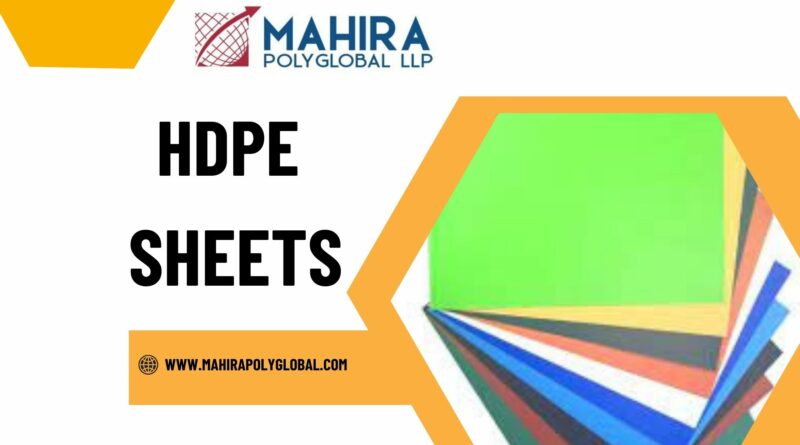Exploring the Benefits of HDPE Sheets Plastic in Various Industries
In recent years, High-Density Polyethylene (HDPE) sheets have become one of the most widely used materials in various industrial applications due to their remarkable properties. HDPE is a versatile thermoplastic polymer made from petroleum, and its rigidity, high strength-to-density ratio, chemical resistance, and versatility make it ideal for a wide range of industries. From manufacturing and construction to food processing and agriculture, HDPE sheets have proven their worth. This article will delve into the benefits of HDPE sheets plastic across multiple sectors, focusing on its cost-effectiveness, durability, and the advantages it provides in everyday applications.
What is HDPE Plastic?
High-Density Polyethylene (HDPE) is a type of thermoplastic made from petroleum. It is characterized by a high density due to its low branching, which gives it a crystalline structure. This results in a material that is strong, stiff, and resistant to chemicals and environmental stress. HDPE is produced using the polymerization of ethylene, and its high-density molecular structure makes it different from Low-Density Polyethylene (LDPE) in terms of mechanical strength and chemical resistance. The result is a durable, non-toxic, and environmentally friendly material suitable for numerous uses, especially in sheet form.
Key Benefits of HDPE Sheets
- Durability and Strength
HDPE sheets are known for their robust durability, making them ideal for applications where strength is crucial. Their high resistance to impact and abrasion ensures they can withstand demanding conditions such as heavy-duty manufacturing processes, material handling, and construction activities. HDPE is capable of tolerating substantial weight and pressure, making it suitable for industries like packaging, construction, and automotive. - Chemical Resistance
One of the standout features of HDPE is its resistance to a wide range of chemicals, including acids, alkalis, and solvents. This characteristic makes it highly valuable in industries such as chemical processing, wastewater treatment, and food packaging. Whether exposed to corrosive substances or harsh environmental factors, HDPE remains unaffected and maintains its structural integrity. - Weather and UV Resistance
HDPE sheets are resistant to environmental elements, including harsh weather conditions and ultraviolet (UV) radiation. This is particularly advantageous for outdoor applications such as signage, transportation, and agriculture. HDPE is not prone to cracking, degradation, or fading when exposed to UV rays, ensuring long-lasting performance in external applications. - Environmental Friendliness
HDPE sheets are recyclable, making them a more sustainable choice compared to other plastic materials. Recycling HDPE reduces the environmental impact of plastic waste, and the material can be reused in various applications. Additionally, HDPE sheets are non-toxic and safe for use in food-related applications, providing eco-friendly alternatives in packaging. - Cost-Effectiveness
One of the most attractive qualities of HDPE sheets is their affordability. They offer a cost-effective solution for industries that require high-performance materials without compromising on quality. The cost of HDPE sheets is competitive when compared to other materials like metals and composites, which makes it accessible for various sectors. The HDPE sheets price is a crucial consideration for businesses looking to optimize production while maintaining budget constraints. - Easy to Fabricate and Customize
HDPE sheets can be easily fabricated, cut, and molded into different shapes and sizes. This flexibility makes them ideal for custom applications across various industries. Whether for creating tanks, containers, or other specialized products, HDPE sheets can be adapted to meet specific needs with ease. Additionally, they can be welded or thermoformed into different structures, providing vast customization options. - Non-Toxic and Safe
Another critical advantage of HDPE is its non-toxic properties. This is especially important in the food and medical industries, where safety and hygiene are paramount. HDPE sheets do not leach harmful chemicals or toxins, making them an ideal choice for applications in direct contact with food products, pharmaceuticals, or medical equipment.
Industries Benefiting from HDPE Sheets
- Construction and Engineering
In the construction industry, HDPE sheets are used in various applications, including insulation, vapor barriers, and construction site signage. Their ability to resist moisture and chemicals makes them ideal for use in environments where other materials might degrade quickly. Additionally, the rigidity and strength of HDPE ensure that it can bear heavy loads and withstand the stresses encountered in construction projects. - Packaging
HDPE is widely used in the packaging industry due to its durability, chemical resistance, and low cost. HDPE sheets are used to make containers, crates, and packaging materials for food, pharmaceuticals, and chemicals. Its versatility allows it to be used in everything from milk jugs and detergent bottles to pallets and packaging for industrial goods. - Agriculture
In the agricultural sector, HDPE sheets are used in greenhouses, irrigation systems, and for covering silos and farm structures. The sheets are resistant to UV rays, ensuring that they do not degrade over time due to sun exposure. Additionally, they provide protection against pests, wind, and rain, helping to increase agricultural productivity. - Water Treatment and Waste Management
HDPE sheets are widely used in the construction of water tanks, pipes, and liners for water treatment facilities and landfills. Their resistance to chemicals and ability to withstand environmental stress makes them an ideal choice for managing wastewater and other hazardous materials. Moreover, HDPE’s impermeability ensures that it effectively prevents leaks and contamination. - Automotive and Transportation
In the automotive industry, HDPE sheets are utilized in the manufacturing of components such as fuel tanks, bumpers, and underbody parts. Their lightweight nature, coupled with high strength, contributes to improved vehicle fuel efficiency and performance. HDPE’s resistance to corrosion also makes it ideal for use in vehicle parts that are exposed to moisture and road salts.
Pricing of HDPE Sheets in India
The price of HDPE sheets varies depending on factors such as thickness, density, color, and application. The HDPE sheets price in India is typically competitive, making it an attractive option for industries looking to cut costs without sacrificing material performance. For instance, the High density polyethylene sheet price can be influenced by the quality of the material and its intended use. The cost of low-density polyethylene is typically lower than HDPE, but it does not offer the same strength and chemical resistance.
As a result, the Low-density polyethylene price in India tends to be lower for more general-purpose applications, while HDPE is preferred for specialized uses due to its superior performance and durability. For businesses like Mahira Polyglobal LLP, which offer HDPE sheet products, pricing plays a vital role in ensuring that customers can access high-quality materials at affordable rates.
Conclusion
HDPE sheets are a powerful material that brings immense benefits to a variety of industries. Their combination of strength, chemical resistance, environmental benefits, and cost-effectiveness makes them a preferred choice for numerous applications. Whether in construction, packaging, agriculture, or other fields, the versatility of HDPE plastic continues to transform industries, enabling companies to meet the demands of modern-day challenges.T he price of HDPE sheets varies depending on factors such as thickness, application, and quality. The high-density polyethylene sheet price is generally competitive in the Indian market, and Mahira Polyglobal LLP is one of the prominent suppliers offering these products.
Frequently Asked Questions (FAQ)
- What are HDPE sheets made from?
HDPE sheets are made from high-density polyethylene, a type of thermoplastic polymer derived from petroleum. - What are the advantages of HDPE over LDPE?
HDPE is stronger, more rigid, and more resistant to chemicals and environmental factors than LDPE. It is ideal for high-strength applications where durability is crucial. - Are HDPE sheets recyclable?
Yes, HDPE sheets are recyclable, making them an environmentally friendly option for various applications. - What industries use HDPE sheets?
HDPE sheets are used in construction, packaging, agriculture, automotive, water treatment, and more. - Can HDPE sheets be customized?
Yes, HDPE sheets can be easily fabricated, cut, and molded to meet specific requirements. They can also be welded for custom applications.




